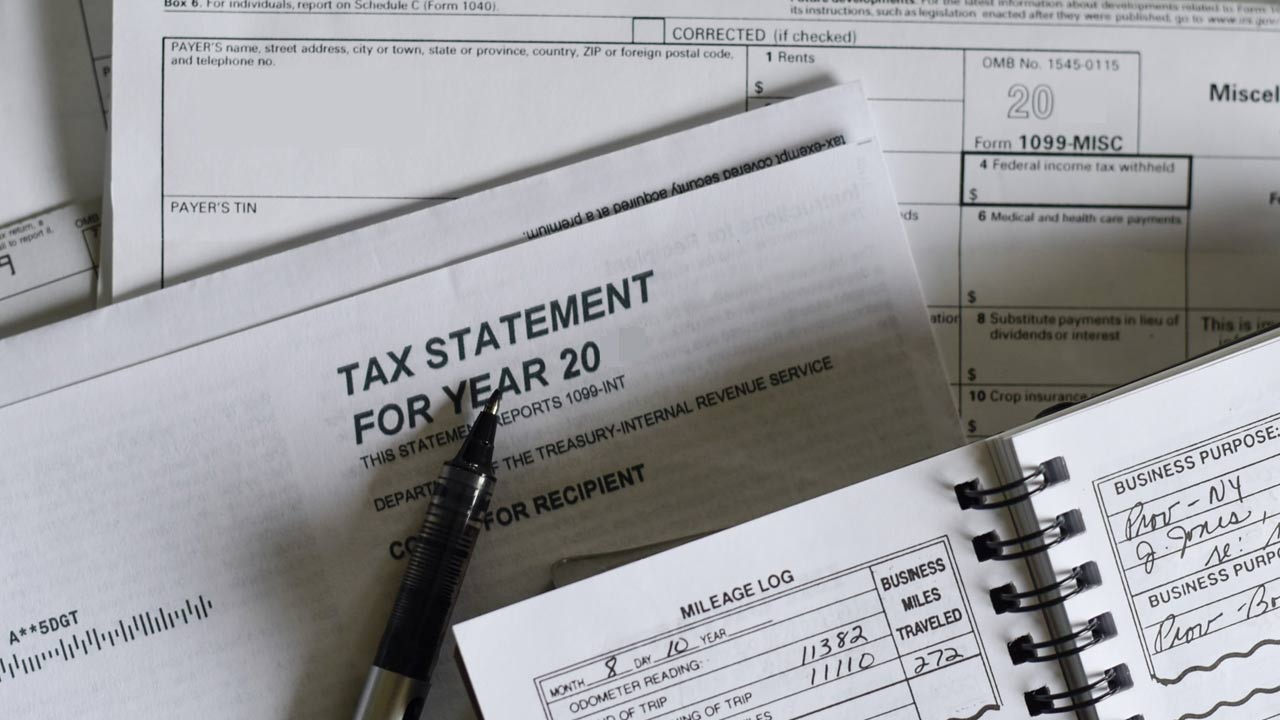Cryptocurrencies have infiltrated the public market considerably since their inception. As such, taxes on cryptocurrency have increasingly become the norm as governments and institutions assert more control over these new assets.
In light of this, the current article will examine when you can get taxed on cryptocurrency. Specifically, it will look at the move toward taxation and regulations put in place worldwide. This should assist in making you aware of any tax pitfalls out there.
Can You Be Taxed On Cryptocurrency?
The short answer to the above is yes. But it’s not quite as simple as that. Below we’ll quickly look at the issue of taxes on cryptocurrencies and why there is a push for their adoption.

The Institutional Concerns About Cryptocurrencies
To start, cryptocurrencies and governments have had a tense and intriguing relationship. In particular, due to its renowned status, Bitcoin has been in the firing line as an easy target.
There are a few concerns that crop up time and again. Firstly, there is the issue of cryptocurrencies and their well-known market volatility. Understandably, governments are wary of mass investment in risky cryptocurrency options.
Secondly, officials have concerns about ceding control over monetary and/or fiscal policies. Effectively, officials would be ceding control to an algorithm and those who maintain it. This is a difficult and a bitter pill to swallow.
Thirdly, the ever-present alleged associations with criminal elements give pause to the open adoption and mainstream acceptance of cryptocurrencies.
The Shift To Cryptocurrency Taxation
Despite these clear and occasionally justified worries, the resilience of many cryptocurrencies over time has forced a reappraisal of the crypto system. Not only has it been resilient in some fashion, but blockchain payments are also far quicker and more cost effective than traditional transactions.
For these very reasons, there has been a gradual tolerance of cryptocurrencies, to the point that they are slowly being inducted into more conventional financial systems. Popular exchanges, such as Coinbase and Binance, have made it easier to shift from cryptocurrencies to fiat and have grown the user base accordingly.
The increased prominence of cryptocurrencies on more traditional markets is evidenced by the existence of futures contracts, amongst others. As there is a tacit acceptance of these cryptocurrencies, and seeing as they have made progress into traditional markets, it’s understandable that there is increased institutional pressure to regulate and set taxes on cryptocurrency.
For example, the US’s Internal Revenue Service (IRS) has recently started mailing taxpayers trading in virtual currency. It’s suspected and alleged that these taxpayers owe the government back taxes. The IRS maintains that those who do not comply could face various measures, from penalties, interest and even jail time.

Taxes On Cryptocurrency
Due to governmental actions such as these, what does this mean for the average crypto trader?
Using Bitcoin as an example, it was originally touted as an anonymous ecosystem. Nowadays, however, the majority of transactions are transparent. While previously, there were certainly increased instances of illicit trading of Bitcoin, this has decreased dramatically since many crypto exchanges have stepped up to impose their regulations. There are now anti-money laundering requirements to avoid perceived overregulation from governmental institutions.
Despite all these alterations to the cryptocurrency ecosystem, the biggest for the average trader has been the rise of taxes on cryptocurrency. Whether classified as a currency or a commodity, the consensus by regulators, bankers, and judges is that cryptocurrencies should be taxed. As a result, the majority of countries do tax them.
Specifics On Taxing Cryptocurrencies
Regardless of the threat of taxation (or regulation more broadly), you needn’t worry unduly until these notions have been put into law. Despite what specific regulators may say or how they view cryptocurrencies in general, they do not have the power to override how your assets are defined or to change the tax code. Traders should take heart that nothing much has changed since the IRS (as an example) addressed the issue of cryptocurrencies in 2014.
Sticking with the IRS, due to its prominent role alongside one of the most important financial markets in the world, they define any digital currency as a property. Effectively, this means that if you purchase anything using this digital currency, it would be taxable as a capital gain (both in the long and short term).
To clarify, if you were to buy anything with Bitcoin purchased back in the day at $1,200, you would also need to consider what the price of Bitcoin is during the purchase. If Bitcoin is currently trading at $1,500 during purchase, this jump in worth will be taxable according to the rules of capital gains.
According to the IRS, cryptocurrency traders are meant to disclose their earnings. If this is not done, you could be charged with tax evasion.

Taxable Transactions
According to the IRS, the following are a few types of cryptocurrency transactions deemed taxable.
Firstly, exchanging any cryptocurrency for fiat (also known as “cashing out”) is an obvious taxable event.
Similarly, a second taxable example is exchanging one cryptocurrency for another.
A more distinctive form of taxation is accrued when you receive mined cryptocurrency.
And finally, a fourth example of a taxable event is when you pay for any goods or services, such as paying for a muffin in your favourite coffee shop.
While the above seems to cover the entire range of possible transactions where taxes on cryptocurrency could be incurred, some events are not deemed taxable, at least according to the IRS.
Interestingly, buying cryptocurrency with your fiat money is not taxable. This means you can buy cryptocurrencies to start trading and not be taxed. But as soon as you cash out or trade for other cryptos, you will be.
Other examples of non-taxable transactions are when you gift crypto to a third party or when you donate to tax-exempt institutions (such as charities and non-profits). Another important example is that the movement of cryptos between your wallets is not taxable.
Calculating What Is Owed
Determining your liability concerning any taxes on cryptocurrency is not a straightforward process.
Exchanging Cryptocurrency For Other Currencies
If you were to cash out of a cryptocurrency for whichever fiat denomination you wish, it’s important to know the price of the crypto when it was both bought and at the moment of the transaction. The difference between when it was bought and exchanged is taxable, similar to income tax in the short term.
Longer-term transactions are taxed according to the trader’s tax bracket.
The above applies to trading one crypto for another as well.

Cryptocurrency Mining
If you were to sell cryptocurrency you’ve mined, you would be taxed similarly to business income. This is because you have performed work to earn these digital assets, and your profit is taxed accordingly.
The good news is that you can deduct any expenses that went into the crypto mining operation, such as electricity and hardware, similar to “regular” work.
Buying Goods and Services
Working out taxes on cryptocurrency when buying goods and services can be complicated. One must first know the difference in the price of the crypto from when it was bought to the moment of the transaction, similar to the above in the case of currency exchanges.
If you were to work out the difference in the price of your cryptocurrency every time you make a purchase, it could end up being incredibly tedious. And this is especially so if you frequently buy goods and services with your currency.
Even worse, there are no small transaction tax exemptions. This means that it’s incredibly costly and difficult to legally use cryptocurrencies to buy goods and services (as things currently stand).
Asking For Expert Advice
It should be noted that many crypto exchanges assist in accounting for taxes on your crypto via wealth management tools. However, these are still complicated enough that you should use a certified accountant when filing your cryptocurrency taxes. Luckily, more advanced revenue services are also helping people amend their tax returns to include any cryptocurrency transactions.
In other words, fewer excuses exist to avoid paying taxes on cryptocurrencies. Revenue services across the globe are plugging up the gaps, and crypto exchanges are assisting in declaring your taxes.
In Conclusion
To summarise, this article has examined whether traders must pay cryptocurrency taxes. It started by tracing the movement toward taxation before listing several both taxable and untaxable events when trading. It then highlighted the complexity of calculating your taxes on every cryptocurrency transaction.
As the above has hopefully shown, you can’t avoid paying taxes on your digital crypto assets going into the future. You should therefore start understanding the intricacies as soon as possible.













